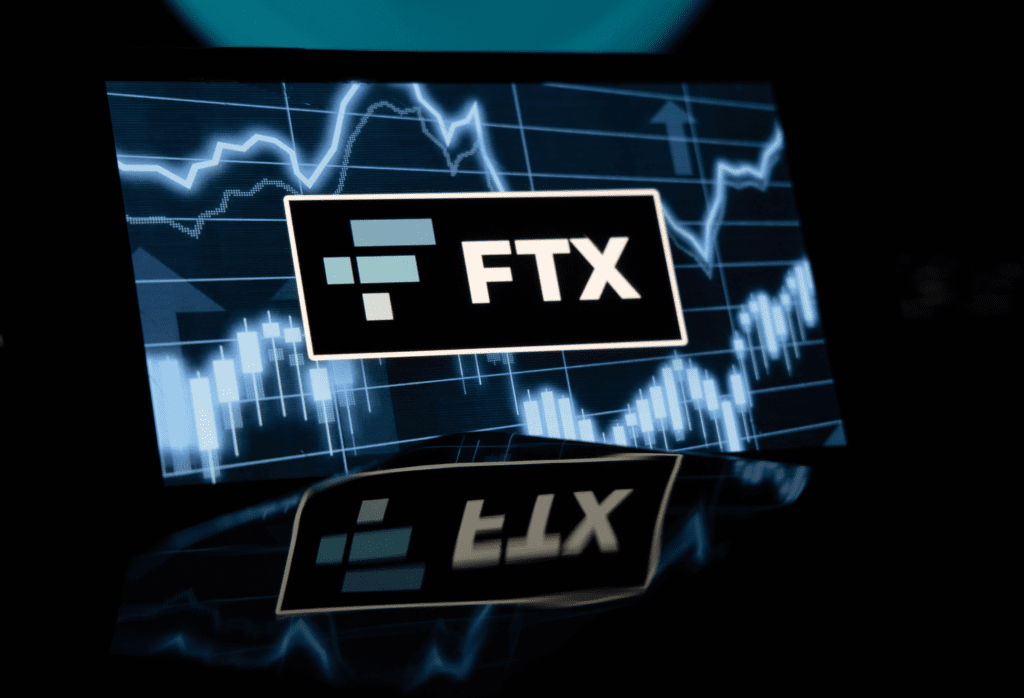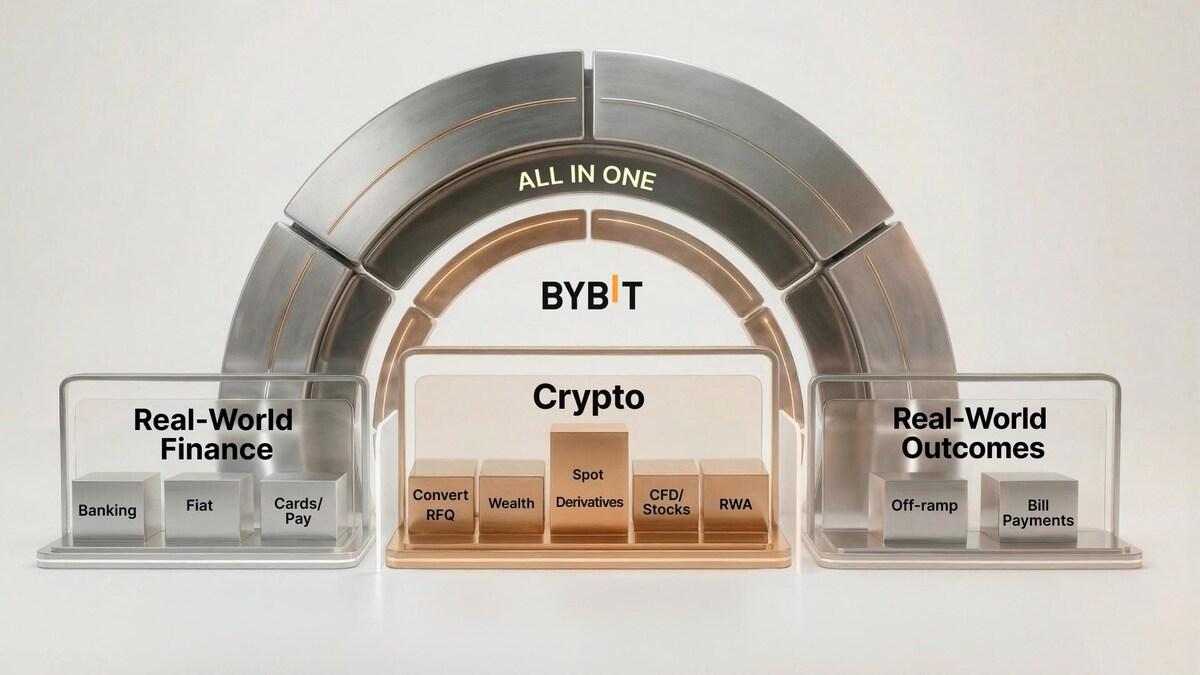Rebuilding confidence is one of the industry development themes for 2023. How does the SuperLoop, which is about to be officially released by the encryption custody platform Cobo, help rebuild trust between trading institutions and exchanges while safeguarding asset security?

As the saying goes, confidence is more important than gold. After the cryptocurrency market experienced the collapse of centralized institutions and frequent hacking incidents in 2022, retail investors kept their wallets tight and began withdrawing funds from centralized trading platforms. The pace of entry of traditional institutions followed the ensuing negative Information also slowed down. Therefore, rebuilding confidence has become one of the industry development themes in 2023.
The confidence of retail investors can be easily restored by relying on a few positive lines in the market, while institutions and old money need policy support and infrastructure improvement to build a golden bell of confidence.
Seeing such market demand, the encryption custody platform Cobo will soon launch a new upgrade of the Loop Alliance (a cryptocurrency cross-platform clearing and settlement network) for many years to Cobo SuperLoop (an exchange off-site custody and settlement network), which can enable trading teams to control.
In the case of assets, transactions are carried out on exchanges while protecting the security of assets; it helps to rebuild trust between trading institutions and exchanges, to activate the liquidity of the encrypted market.
The crisis of trust must be resolved by technology without trust assumptions
The collapse of centralized institutions such as FTX not only caused damage to user assets but also caused serious trust crises caused by related transactions and misappropriation of user assets. For a long time after the FTX incident, even though centralized exchanges have provided proof of assets, the balance still dropped sharply, and the wallet balances of both giant whales and ordinary currency holders showed net balance growth.
In fact, although centralized trading platforms account for the majority of asset storage due to the convenience of operations and transactions, these platforms not only face the potential risks of centralized institutions doing evil but also have various attacks by hackers. And uncontrollable human factors such as coin loss.
The encryption industry is regarded by hackers as a “land of milk and honey.” According to the statistics of SlowMist Hacked, there will be a total of 306 security incidents in 2022, with a loss of up to $4.382 billion (according to the incident price calculation).
Affected by the FTX incident, the U.S. SEC even investigated investment advisers on crypto custody issues. According to U.S. law, investment advisers cannot make custody client funds or securities if they do not meet certain requirements for asset protection.
However, although countries have tightened regulatory policies due to events such as FTX, it is not easy to reduce the asset risk of CEX (centralized exchanges) through regulation, and the difficulty of cross-border coordination is self-evident.

Compared with CEX, wallets and DEX (decentralized exchanges) seem to be the mainstream choice for more users to store assets, but risks still exist, especially for users with large funds. Among them, the wallet has the risk of hacker attack and loss of private key.
Although DEX hosts user assets in smart contracts, which solves the operational risks caused by human factors such as embezzlement, the transaction depth and liquidity are limited, making its transaction experience unable to match CEX.
Behind the security risks of assets such as CEX, in the final analysis, transactions and funds are mixed. In fact, the strict separation of trading, clearing and settlement has always been one of the effective risk prevention methods of traditional finance. Therefore, it can be seen that in the traditional custody industry, the strict isolation system of custody assets ensures the rights and interests of all parties.
The entrusted assets will not be included in the liquidation assets like FTX, etc., which will make the client fall into the dilemma of difficult rights protection. But even if CEX realizes the separation of transaction and funds custody functions, the risks brought by the centralized organization itself cannot be truly resolved.
In this context, the market needs solutions provided by independent third parties. Cobo’s newly upgraded product SuperLoop is an attempt to ensure the independent security of funds through technological innovation and help CEX and users rebuild trust.
The predecessor of SuperLoop, the Loop Alliance, was launched by Cobo in 2019, allowing members of the alliance (such as exchanges, trading institutions, etc.) to settle transactions off-chain immediately after completing fund custody, and the upgraded SuperLoop will become an exchange’s off-site custody and A settlement network that allows users to trade on exchanges while maintaining control over their funds.
How to achieve it? SuperLoop allows users to use MPC (Multi-Party Computation, Multi-Party Secure Computing)-based multi-party coordination solutions without pre-funding their accounts on the exchange and can trade on the exchange through mirrored funds.
Cobo, as a technical escrow third party, can assist users to lock their funds in Cobo custody on demand. Before the transaction, the funds will be mapped at a ratio of 1:1 (that is, there is no actual transfer of funds) to the trading platform selected by the user. Users can use the mapped funds to freely trade on the selected trading platform and then settle through SuperLoop after the transaction is completed.
For transaction teams such as hedge funds/market makers, prime brokers, asset management teams, VC funds, and family offices, mapping funds on CEX through SuperLoop can not only avoid the risk of transfer of funds on the chain but also improve the efficiency of capital utilization, to reduce the cost and threshold for institutions to access multiple exchanges.
Of course, for the exchange, this model of SuperLoop will also help increase the disclosure of the exchange, reduce counterparty risk, attract more trading teams and higher trading volume, increase trading activities, and even ensure The ability of the deal team to perform prior to executing the deal.
It is worth mentioning that if both trading users and exchanges have opened full custody accounts in Cobo, trading through Cobo SuperLoop can also avoid execution on chains that are often congested and enjoy zero transaction fees and instant access to funds Double experience.
By separating transactions and funds, custodian users of Cobo SuperLoop can enjoy the convenient operation experience of CEX without worrying about the safety of funds, and the assets are more efficient and flexible, and CEX will also regain transaction volume.
The dual plan is the bottom line for asset security
In addition to the aborigines in the cryptocurrency world, players in the traditional world are also accelerating their pace of entering the encryption market. However, for institutional users with large funds, security issues are making them fall into a dilemma.
If you choose wallet storage, then in addition to facing hacker attacks, there are also risks in how to back up the private key and who keeps it, and under transaction requirements, there will also be asset risks due to multiple authorizations during multiple logins and transactions on various trading platforms. In addition, although many CEXs have launched related hosting solutions for institutional clients, this method of “being both an athlete and a referee” has hidden risks.
In contrast, third-party asset custody, as an important component of cryptocurrency infrastructure, has become an important bridge for traditional institutional users to enter the market, and security, as the core task of custodians, is also one of the main competitive factors in the market competition.
In order to lay a good foundation for fund security, SuperLoop is equipped with a dual solution of MPC (Multi-Party Computation, secure multi-party computing), co-management and full custody, aiming to keep risks out of the safe box.
Cobo MPC co-management solution adopts the most cutting-edge MPC-TSS (Threshold Signature Scheme) technology. Using MPC-TSS technology, multiple parties (that is, the customer, Cobo and the third party designated by the customer) each manage a private key segment and complete actions such as creating, signing and restoring the private key through distributed computing. The private key of any party is It will not be leaked due to collaborative interaction, and the private key before the split will not exist anywhere in any form.

MPC-TSS technology ensures that individuals and enterprises can use keys more conveniently, securely, and in compliance with business logic. Compared with technologies such as multi-signature, MPC-TSS has the advantages of eliminating single points of failure, effectively reducing transaction fees, improving operational efficiency, supporting flexible deployment, and securely storing private keys.
Under Cobo’s full custody solution, users’ funds will be stored under the Cobo Custody platform, and users can enjoy Cobo’s bank-level fund protection without worrying about key sharing management or server maintenance.
As custody platforms such as Cobo continue to improve the bottom line of asset security, it may further break down the barriers for traditional institutions to enter the encryption market.
What are the advantages of SuperLoop in competing with encrypted hosting platforms?
As more and more traditional players include encrypted assets as investment targets, the scale of assets under custody (AUC) of encrypted platforms has also grown rapidly. According to a recent research report by market analyst Bernstein, the hosting revenue opportunity could grow from less than $300 million today to $8 billion by 2033.
This also confirms that encrypted hosting is still a new battlefield worthy of further exploration. This “big cake” naturally attracts players from both old and new worlds to share. For example, Citibank conducts digital asset custody through Metaco, a Swiss cryptocurrency custody company; Goldman Sachs is exploring the custody business of the encrypted asset market; Fidelity has launched an institutional-grade investment custody platform for cryptocurrency; Crypto hosting services and more.
In order to get a share of the highly competitive hosting track, creating differentiated selling points to impress users is the key. Looking at the entire encrypted hosting industry, they are also targeting this market opportunity and are actively developing products similar to Cobo SuperLoop. For exchanges and trading teams, the current consideration may not be whether to accept third-party custody but how to choose a more suitable third-party custody.
The primary consideration for exchanges is the extent to which third-party custody can intrude on their own business. Some institutional custody schemes require the exchange to host funds on the custody platform and even further require the exchange to transfer some of the customer’s transaction data on the exchange to the custody platform. Obviously, these will increase the burden on the exchange, and some conditions are not applicable to the exchange.
Whether the hosting platform can truly realize MPC-based multi-party coordination is also an important consideration. MPC co-management requires the distribution of private keys in the hands of different parties. If the custody assets are moved from the MPC custody account, even if they are still kept inside the platform, the security of the assets may be reduced.
In addition, the difficulty of docking and manpower investment, the compliance and security level of the hosting platform, etc., will also affect the choice of hosting solution for the trading platform.
Regardless of the business model, due to the lack of crypto custody supervision in most countries, mature and compliant crypto asset custody has become a prerequisite for traditional large financial institutions to enter the crypto market and is also a key factor in winning the trust of more institutional users, especially License and compliance review can bring strong credit endorsement.
In the above aspects, Cobo SuperLoop has been fully optimized and will not intrude on the exchange business. It only uses the fund mapping method as a supplementary channel for exchange deposits. The transaction process between the exchange and the trading team remains the same as before. In addition, Cobo holds licenses in the US, Hong Kong, Lithuania and Dubai and has obtained SOC 2 Type I certification.

Previously, Cobo Loop has received participation from bit.com, Deribit, F2pool, BitFuFu, Pionex, MXC and other users, covering trading platforms, mining pools, cloud computing power and other fields. As SuperLoop is about to be officially released, BitMart has officially announced that it will join the SuperLoop network, and there are many leading exchanges that are closely connected.
The hosting industry is one of the important infrastructures connecting encryption and the mainstream world. Only by continuously developing iterative services can we meet the needs of a wider market.
Product upgrades such as SuperLoop reflect the continuous maturity of the custody industry, which will further promote the development and popularization of the encryption industry, and the programmable Crypto world also means that future encryption custody may provide more diversified services than traditional asset custody.
DISCLAIMER: The Information on this website is provided as general market commentary and does not constitute investment advice. We encourage you to do your own research before investing.
Join us to keep track of news: https://linktr.ee/coincu
Harold
Coincu News






















